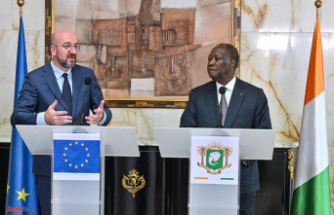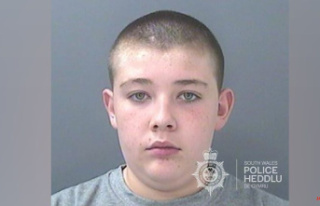A 11-year old girl with ADHD and autistic characteristics said that she struggled to express her feelings until she found ice skating.
Teddy Weston, a British and World champion of inclusive ice skating, is the first representative of Northern Ireland.
Inclusive ice skate provides safe spaces for individuals with special needs and their families to enjoy this sport.
Claire, Teddy's mother, hopes that more children can take up ice skating, just like her daughter.
She believes that every child should be able to participate in sport in a safe, secure environment.
Inclusive skating will consider any additional needs of a competitor and will make it easier for them to practice or compete in competition.
This could be a lack of music, a guide or a skate aid being given to someone during their performance or virtual skating.
Teddy said that he loves being on the ice because it allows him to express himself.
"I enjoy learning new tricks and being able take part in activities with my friends."
Her mum stated that Teddy was diagnosed with ADHD (attention deficit hyperactivity disorder), at the age of six, and autistic at nine.
"She loved climbing things from an early age, so I took her to Dundonald Ice Bowl's climbing wall to help her channel that urge. But she wanted to try ice skating on her second visit.
"Teddy had to deal with many practical issues the first time she went, but slowly got to know the staff and the building, which quickly became one of her safest places.
"She was able practice life skills such as talking to the receptionist, paying for her ice-time, or showing her membership card.
It's helped her increase her confidence. She claims she feels like she's flying on the ice, and that the skating helps her calm down.
She said, "Teddy is able to express herself in an way that she cannot on solid ground. I can't really explain why it's so,"
Ms Weston stated that Teddy had been practicing for years and wanted to take up ice skating. However, she said it was not practical.
She stated that there were many issues, including her anxiety, difficulty traveling and transitions, as well sensory issues related to costumes and competition dresses.
"That's before we have to face problems like learning and remembering a procedure, making eye contact and smiling in front of judges."
Ms Weston said that she found Inclusive Skating competitions, and signed Teddy up to be a skater and herself as a volunteer.
Teddy was able to enter the World championships at 2021's end and won two gold and one bronze medals.
Teddy and her mother will be travelling to Sweden next week in order to represent Northern Ireland at an inclusive skating camp that includes other skaters from all over the globe.
"Inclusive skating allows everyone to skate, regardless of their needs. It allows children who are often overlooked to shine and is celebrated," Ms Weston stated.
"Every child should be able to celebrate success and enjoy their successes in a safe environment."
Amy Irwin, Teddy's ice skating coach, said that Teddy's progress since being involved in inclusive skating as both a skater as well as as a person has been "nothing but phenomenal".
"Inclusive skate is an incredible opportunity for Teddy and many other children who might have believed that ice skating was not something they could do.
"What most people know about traditional ice skating competitions should be remembered that it isn't just a sport, but also a performing arts.
It may not be the best fit for children with special needs due to its competition rules and structures.
"Inclusive skating will allow every child the opportunity to compete with allowances, so they have an equal chance to perform on a level playing ground and show their potential."












